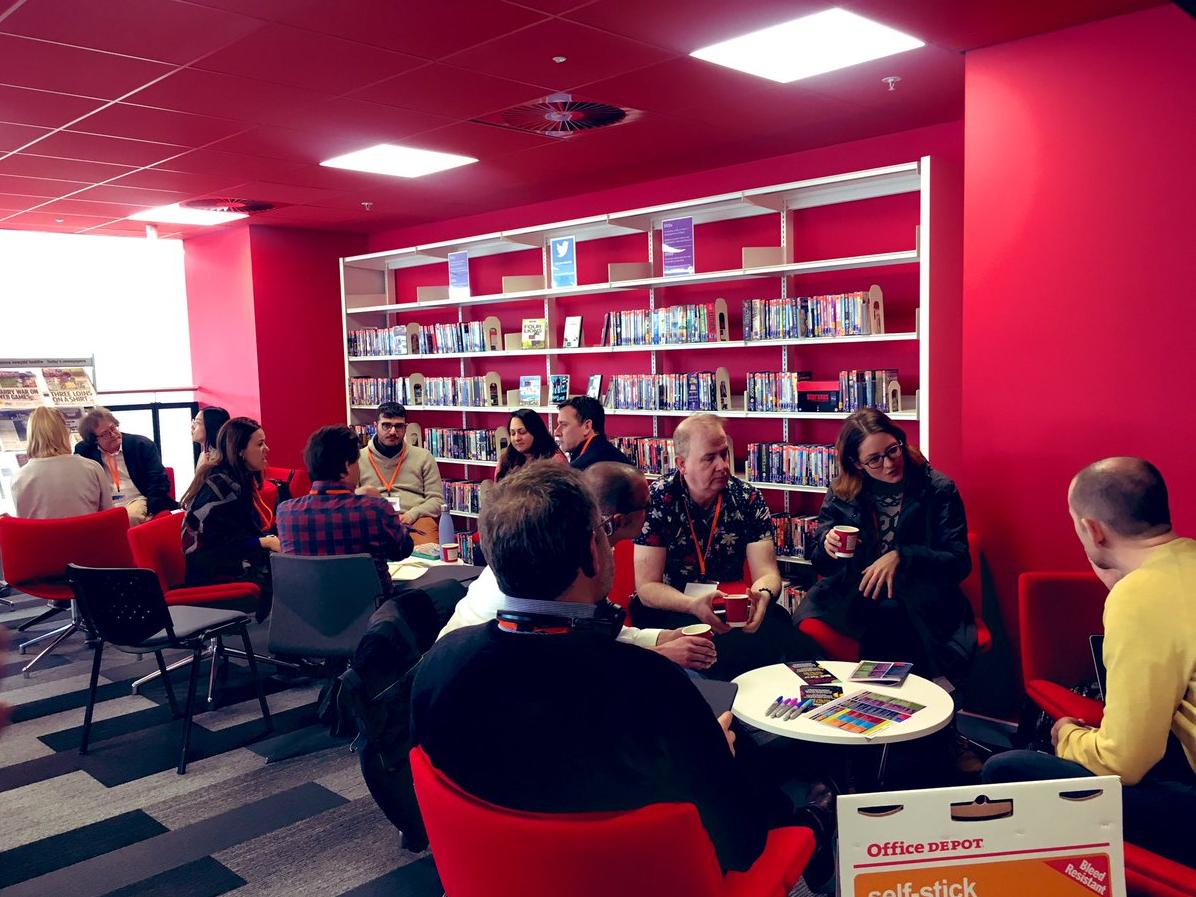Gareth Loudon is a Professor of Creativity at the Cardiff School of Art and Design, Cardiff Metropolitan University and a Co-Investigator on Clwstwr. We asked him to share his thoughts on creativity:
Below are strategies that you might want to follow to enhance your creativity and to help you develop new innovative products and services within the Clwstwr programme.
Be open minded: Creativity is not just about following a process, it is also about attitude and mind-set. Being open-minded and willing to challenge our own views, thoughts and assumptions is crucial to enhancing our creativity. So it might be worth asking yourself whether you have been open to new ways of working; to the use of new technologies; to exploring new markets; to applying new business models; or simply listening to people with different views, experiences, skills and knowledge. Often we get stuck in certain ways of thinking and working and this can be one of the biggest barriers to gaining new ideas.
Seek inspiration: One of the best ways of gaining new insights is by getting out of the office and gaining new experiences. For example, you could spend some time with your existing customers or with potential customers to help you get a better understanding of their needs, desires, behaviours and motivations. Listening to what they have to say, observing what they do and observing what they use (e.g. products, services and technologies) will probably generate a whole host of new ideas for you. You can also gain new insights by going to technology fairs and trade shows, or by just exploring online. The key is to connect with people you haven’t previously connected with.
Make time for reflection: Creativity is not just about connecting with new people and gaining new experiences, it also about connecting ideas that might initially seem unrelated. This requires making time for quiet reflection. Think about when and where you have your best ideas. Perhaps it is while out walking the dog, while lying in bed at night, while having a shower, while out exercising, while driving, or after a glass of wine? New ideas are often formed when you give yourself time to engage and explore new possibilities with a state of openness and mental stillness, and when you are not distracted. So, create time and space for reflection - and switch off your phone. It is also important to note that stress can narrow your scope of attention, so pick an environment for reflection where you feel happy.
Play: As well as listening, connecting and reflecting being important, you should also play around with ideas to gain new insights. I use the word play rather than experiment or prototype deliberately. Play includes prototyping and experimenting, but it also emphasizes the importance of your attitude while prototyping, making and experimenting. Play implies playfulness, joy, freedom and the absence of consequences, and therefore creates a mind-set more conducive to creative insights – it is also implies taking action. By playing with ideas and possible solutions you will get immediate feedback on what works well and what doesn’t work so well. A common mistake people often make is trying to find the single right solution too early in the creative process, rather than playing with a range of ideas, and allowing the opportunity for new connections and insights to emerge.
Collaborate: Another key strategy to enhance your creativity is to get help. In particular, help from people with different and complementary expertise to your own. New innovative products and services need to be desirable, commercially viable and technically feasible for them to be successful. This often means that you need expertise in areas such as technology development, design, marketing, finance and business strategy (to name just a few). If you are an expert in all these areas, then that is very impressive, however, I would suggest that most people are not. Therefore look at who you could collaborate with. In fact, even if you think you have all the necessary expertise, I would still encourage you to collaborate with others, as this will result in the generation of more ideas and the chance for you to gain more feedback on which ideas have the most potential. Don’t forget that one of the most important groups to collaborate with are your existing or potential customers.
Be clear on your motivation: Last, but by no means least, it is very important to reflect on what personally motivates you. For example, why do you want to develop new innovative products and services? For what purpose? Developing something new of value is not always easy and often requires courage and resilience. Therefore you need that internal drive to make it happen. Before you embark on any of the other four strategies listed above, I highly encourage you to start with this one.
If you are interested to find out more about my thoughts and ideas on creativity, you can watch my public talk Being Creative: Our Purpose in Life? below.

